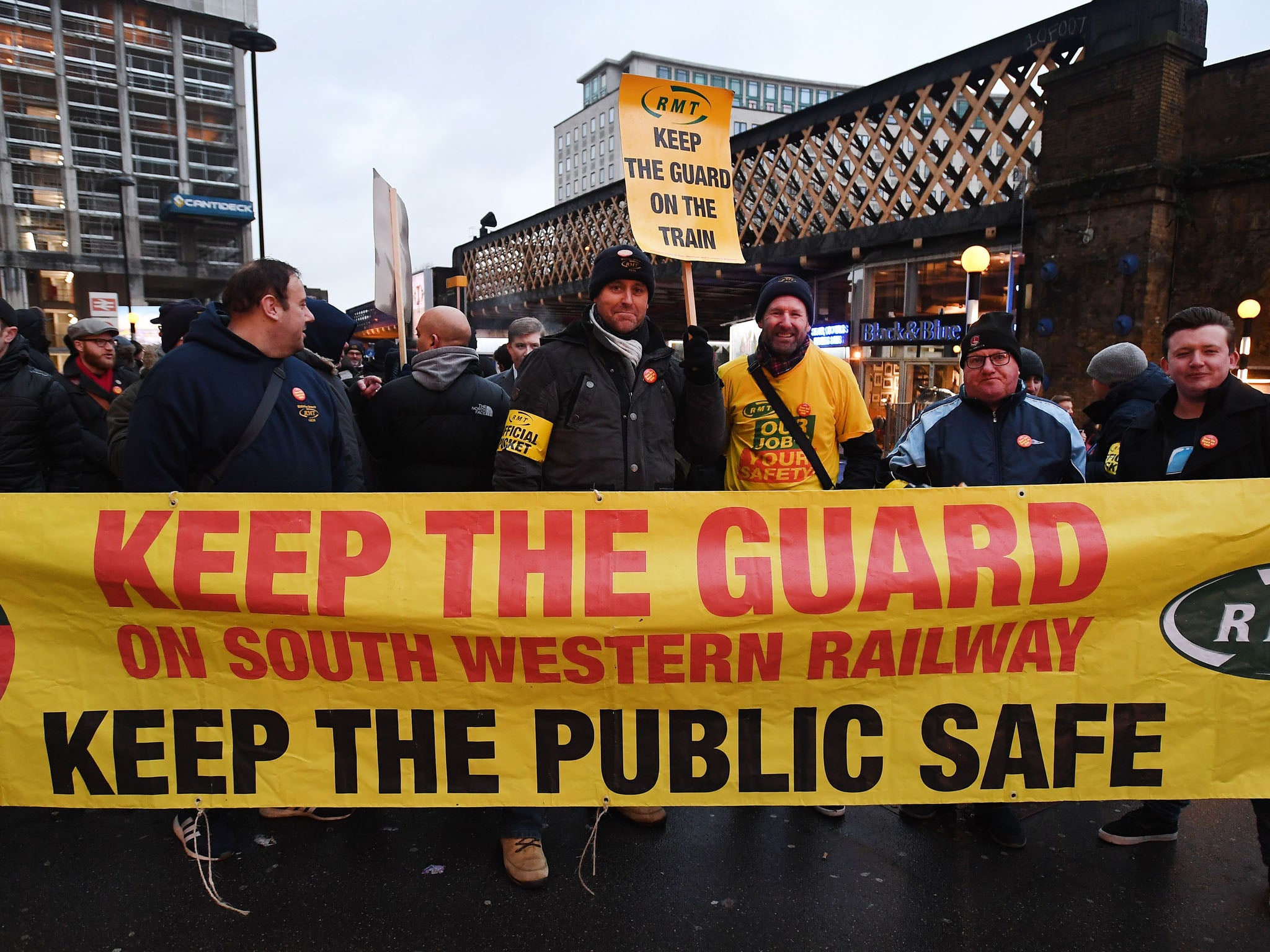Royal Ascot race-goers face travel chaos as rail strikes continue
Stoppages planned this week on South Western Railway, Northern and French railways
Your support helps us to tell the story
From reproductive rights to climate change to Big Tech, The Independent is on the ground when the story is developing. Whether it's investigating the financials of Elon Musk's pro-Trump PAC or producing our latest documentary, 'The A Word', which shines a light on the American women fighting for reproductive rights, we know how important it is to parse out the facts from the messaging.
At such a critical moment in US history, we need reporters on the ground. Your donation allows us to keep sending journalists to speak to both sides of the story.
The Independent is trusted by Americans across the entire political spectrum. And unlike many other quality news outlets, we choose not to lock Americans out of our reporting and analysis with paywalls. We believe quality journalism should be available to everyone, paid for by those who can afford it.
Your support makes all the difference.On the eve of Royal Ascot 2018, race-goers have been told “to allow extra time for their journey and be prepared to queue” as a result of various strikes.
The National Union of Rail, Maritime and Transport Workers (RMT) has called another three-day strike on South Western Railway over the role of guards when new trains are introduced next year.
Members will stop work on 21, 22 and 23 June – the last three days of the highlight of the horse racing calendar.
Many race-goers travel by train from Britain’s busiest rail station, London Waterloo. Trains normally depart every half-hour for the 52-minute journey to Ascot.
The train operator says it aims to run at least seven out of 10 of weekday services. Trains between Guildford and Ascot will be replaced by a bus service between Guildford and Virginia Water, where they will connect with trains. But the proposed timetable will not be published until Tuesday 19 June.
It warns services which do run “will be very busy”. The union’s general secretary, Mick Cash, said: “RMT has made every effort to progress talks with South Western Railway but there has been a total lack of goodwill from the company and as a consequence we have no option but to confirm this further round of industrial action.
“The union won’t stand aside while they play fast and loose with both the talks process and the safety and well-being of the general public.
“We have long detected the dead hand of the government interfering to stop us reaching negotiated settlements in the current disputes and it’s about time [transport secretary] Chris Grayling stopped playing politics with passenger safety and started taking the issue seriously.”
South Western Railway said: “These new trains will be capable of being operated in a number of ways, one of which would see the driver open and close the doors, improving performance and allowing the guard to concentrate on customer service.
“We have guaranteed that a guard will be rostered to these trains, and that we will need more guards during this franchise to deliver the additional services we plan to introduce.

“Despite these assurances the RMT remains in dispute and has now chosen to involve us in an on-going national dispute which suggests the role of the guard is not guaranteed.”
RMT members on Northern Rail, which serves the region from Nottingham to Northumberland and Cheshire to Cumbria, will strike on Tuesday 19, Thursday 21 and Saturday 23 June. The stoppages are also over the role of guards.
The train operator, which has been heavily criticised for the botched introduction of new timetables, said: “On Tuesday and Thursday, the majority of available trains will operate between 7am and 7pm as we focus on running as many trains as we can to get you into work and home again.
“On Saturday, most trains will run between 7am and 7pm, though, on a handful of routes, services will begin to wind down earlier.”
Northern urges passengers to “consider whether travel is necessary” during the strikes.
The RMT has claimed that taxpayers and passengers are footing the bill for the cost of strike action.
“The government is using northern taxpayers’ and passengers’ money to bankroll German state owned Northern for losses for the days of strike action to date and the three days of action this week,” it claims.
In France, one out of four TGV high-speed trains have been cancelled by the latest strike, as part of a long-running dispute over the introduction of modernisation and competition.
Only half the conventional inter-city trains are running.
Further rail strikes are expected on 22, 23, 27 and 28 June, and could be extended into the peak holiday months of July and August.
Eurostar trains between London and Paris have not been affected.

Join our commenting forum
Join thought-provoking conversations, follow other Independent readers and see their replies
Comments